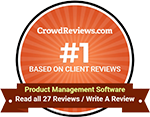TABLE OF CONTENTS
TABLE OF CONTENTS
Other Usefull Contents
You can see many success stories from our customers, and you may be one of them in the future
Unlock the Power of Mobile Commerce: Propel Your Business Forward
Read MoreDiscover how to harness mobile commerce to enhance your business growth. Learn strategies for optimizing the mobile shopping experience and increasing consumer engagement.
Read MoreDiscover the benefits of mobile commerce and how it can transform your business. Learn effective strategies for maximizing sales and customer engagement through mobile-optimized shopping experiences.
Read More














When we mention to plugin ecosystem, WordPress seems to be the greatest. To gain that achievement, we have the contributions of thousands of developers build and maintain a bewildering array of plugins with features that range from minor graphical tweaks to full-blown eCommerce stores. Of course, most of them are really helpful but we cannot be sure that among so massive amount, there is no problem. Plugins are of varying quality and usefulness. Therefore, it is so important for WordPress site owners to keep a close eye on the plugins they have been using. From my real experience, I will make a list of rules for dealing with plugins and your site can be secure, fast, and uncluttered.
1. Less code is better
I have no idea when you use a lot of plugins on your site providing that they are useful and give a site the functionality it needs. Many WordPress plugins might not cause problems but leaving too much unnecessary ones might.
Every plugin introduces code into your site, and, in general, the less code you can get away with the better.
The code needs to be executed, and that takes time. Many plugins introduce front-end elements, which takes more time of loading and hurts UX on your site. When you’ve decided you don’t need the functionality, there’s no reason to keep the plugin installed.
One more thing, any plugin might introduce a security vulnerability, if you still use, update them, if no, delete them because there’s no benefit to taking that risk.
2. Pay attention to what you install
As I said above, when you install a plugin, it will introduce new code into your site. That code has access to the database and to your users. You should think about the security implications of every plugin you install. Additionally, poorly coded plugins can introduce performance problems and break parts of a site.
If you intend to use a plugin, make sure that it is actively maintained, frequently updated, that a reliable developer created it, and that it is compatible with recent versions of WordPress. Whenever you need, you can find all of that information on the plugin repository.
3. Update plugins
The last note is to make sure you check and update plugins frequently. Neglecting to update WordPress is one of the main reasons of hacked sites. Updates include security patches, so you should update even if you aren’t interested in new features.
In overall, the WordPress plugin ecosystem brings users multiple huge benefits but be careful what you install, remove plugins you aren’t using, and update plugins when a new version is released.